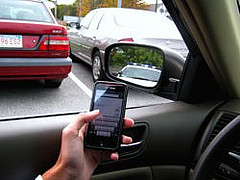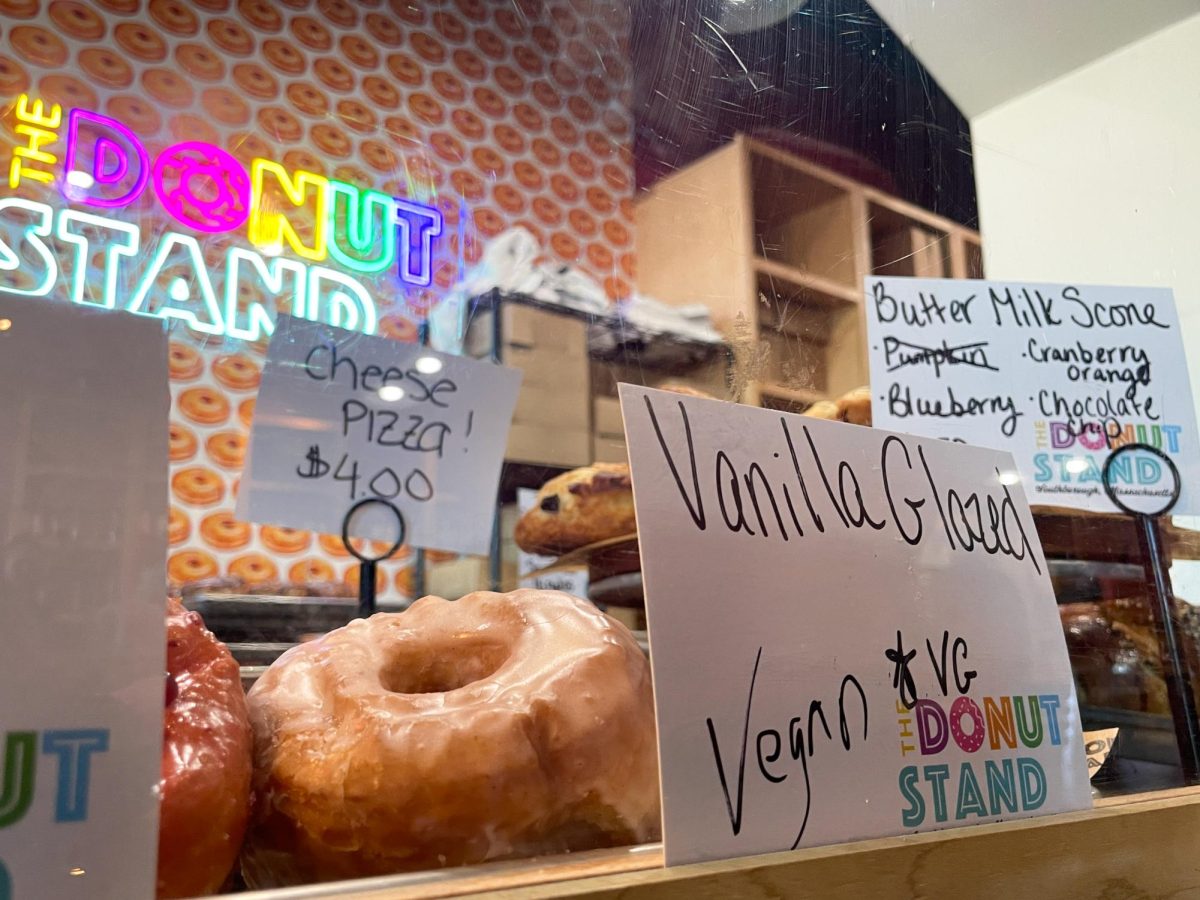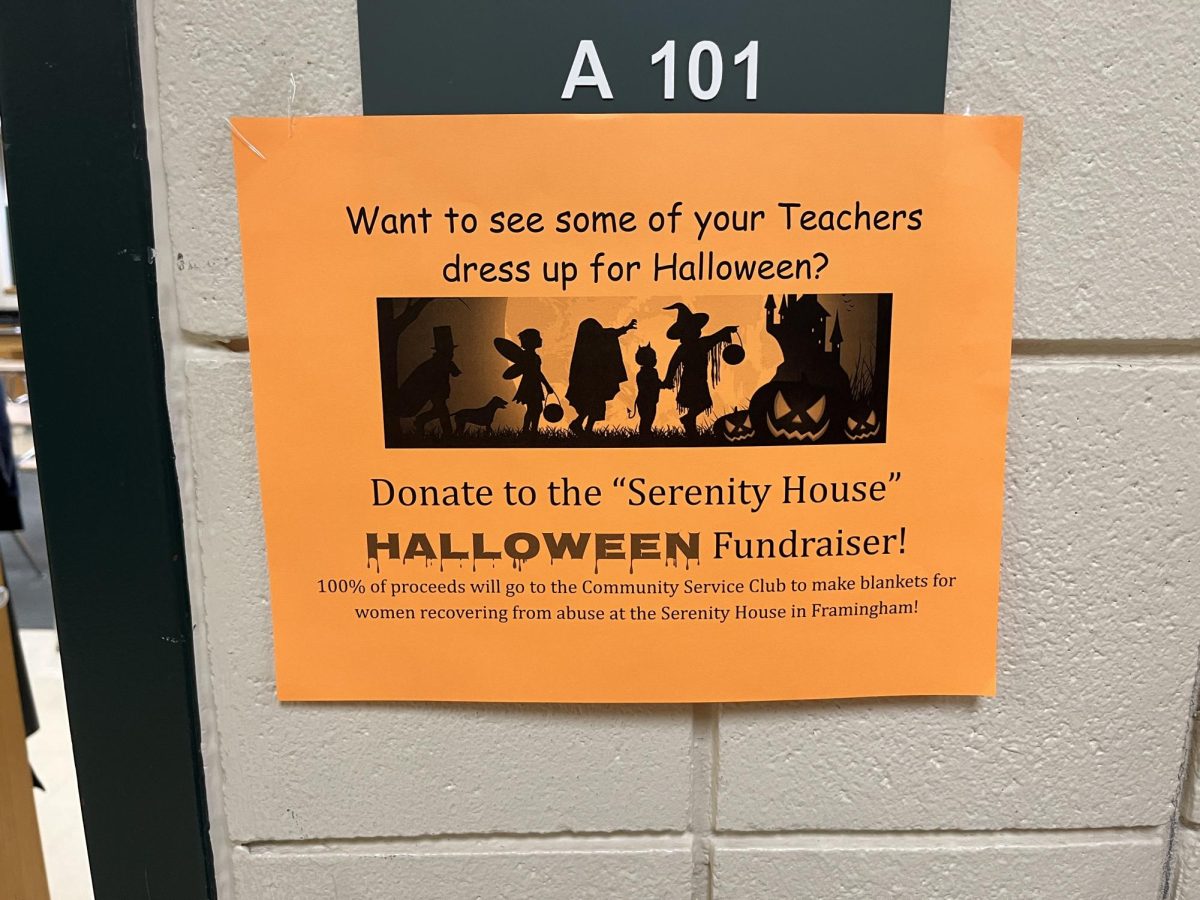
By Mike Ronan
Enacted into law October 1, 2010, Massachusetts banned texting while operating a motor vehicle due to the high rate of fatalities that occur as a result of texting related accidents. Many teenagers, however, still do not take the issue seriously.
Governor Deval Patrick signed the distracted driving bill into law on July 2nd, 2010 in an attempt to lower the amount of texting related car accidents.  In 2008, Americans sent 1.6 trillion text messages. Of those 1.6 trillion text messages, 5,000 caused a fatal accident.  He also signed a bill that prohibits drivers under 18 years of age to use any type of mobile device while driving.  This includes cell phones, Ipods, portable DVD players, etc.
This new law gives police the right to pull over drivers who are texting while driving a motor vehicle. Unlike not wearing a seat-belt, which is a secondary offense, the new texting law is a primary offense, which gives police the right to pull over anyone suspected of texting. The State has imposed harsh consequences for the new law. For a first offense the driver will be issued a $100 fine, a second offense will receive a $250 fine, and a third offense will result in a $500 fine. Â A Junior Operator License holder, or a driver under eighteen years of age, will receive the original $100 fine, lose their license for 60 days, and will also be required to take a driving retraining course.
Students at Hopkinton High School do not appear to be enthusiastic about the new law. In a recent survey that took place in the Hopkinton High School library, a random group of students was asked if they think the new texting laws will save lives. 7 out of the 12 students interviewed said they thought the new laws will save lives, however, 5 out of those 7 students also said that they will still continue to text while driving.
Students also claimed that the type of phone being used could affect the driver’s ability to focus on the road.  Many of the modern smart phones have speech recognition, which translates speech into a text message.  A student who wishes to remain anonymous stated, “It all depends about the phone. Texting on a normal keypad is a lot harder than texting on a Blackberry or Android powered phone.” Nicole Wigglesworth, a senior at HHS, has a different perspective on the issue. She stated, “I don’t even look at my phone while I’m driving, I concentrate on the road.”
Many students believe there is a loop hole in the new law as well. Some stated that they will send a quick text when they stop at a stop sign or stop light; however, police consider texting at a stop light or stop sign a violation of the new law as well.
With many teenagers unenthusiastic about the new law, local police officers will need to observe drivers more carefully. In the first few months of the law, teenagers are expected to continue to text, but be more cautious about it. It’s most likely that teenagers will lower the phone as a police officer approaches, and will continue to text after he passes. As more and more teenagers begin to be pulled over and  cited for texting while driving, the amount of texting while driving should slowly decrease. The new distracted driving laws are expected to have a significant impact on the number of fatalities resulting from texting related car crashes.






Joe Cotton • Nov 12, 2010 at 11:32 PM
Thank you for showing me your school’s news site Mike. I enjoyed reading your article.
Katie Potenzone • Oct 28, 2010 at 5:11 PM
As someone who is still not an “experienced” driver according to insurance companies, I think this law is a good law. I have no idea how someone can text while driving, there is just so much to focus on when driving, especially for the target group of 16-18 year olds. I’m almost 19, and have been driving for three years, and I still don’t know how someone can find a contact in their phone, let alone prepare a text message. I just think it is a hard law for officers to enforce because most of the time they can’t see completely inside the car.